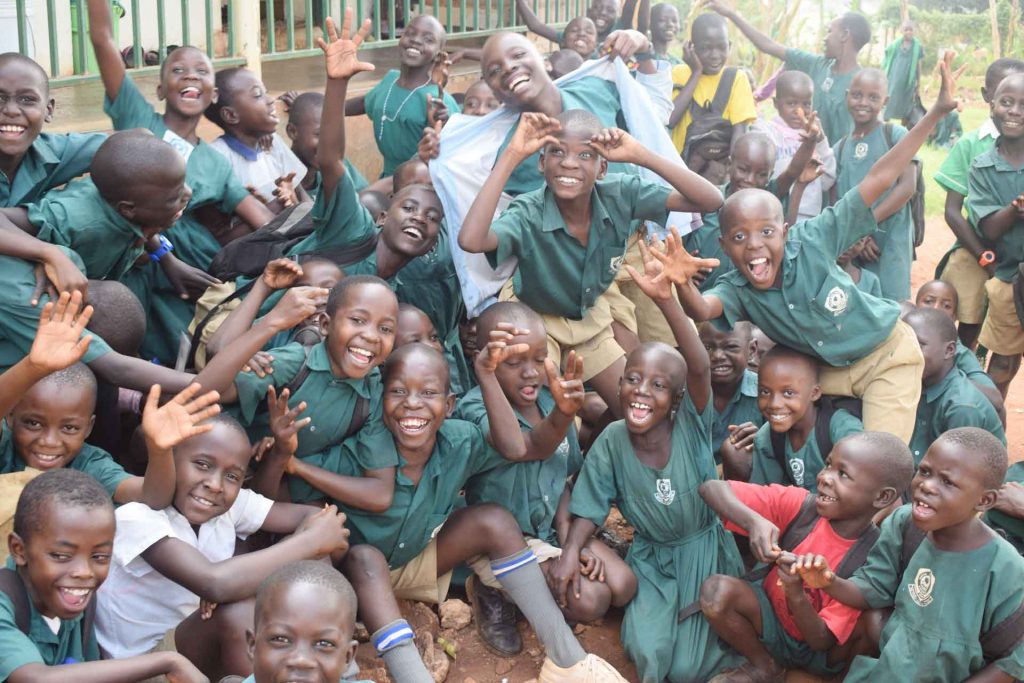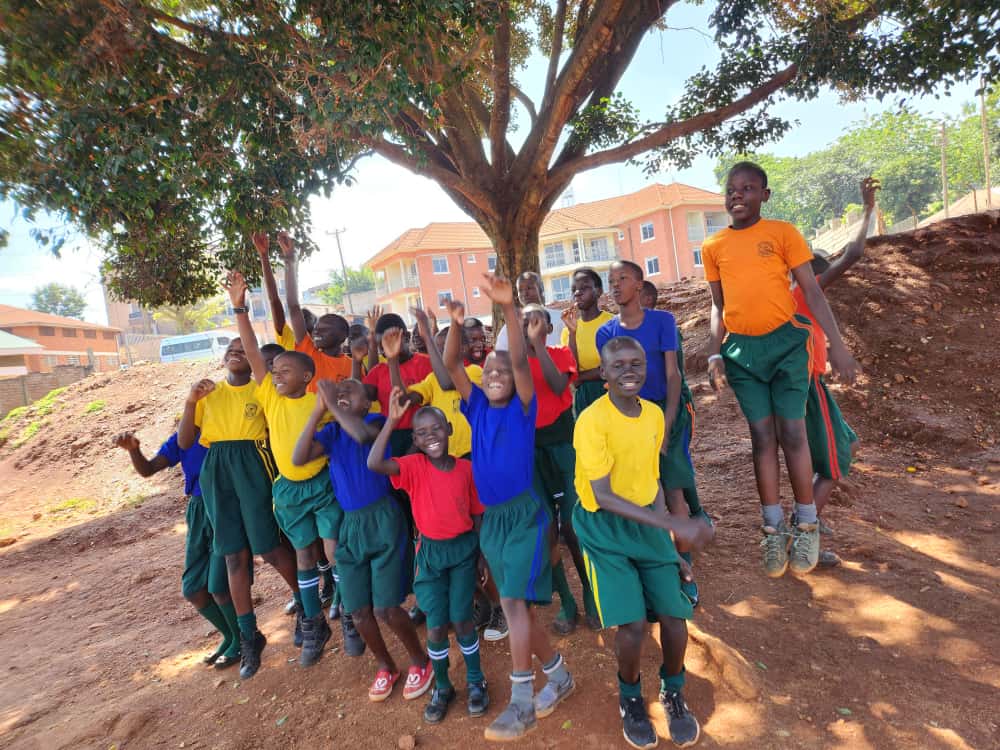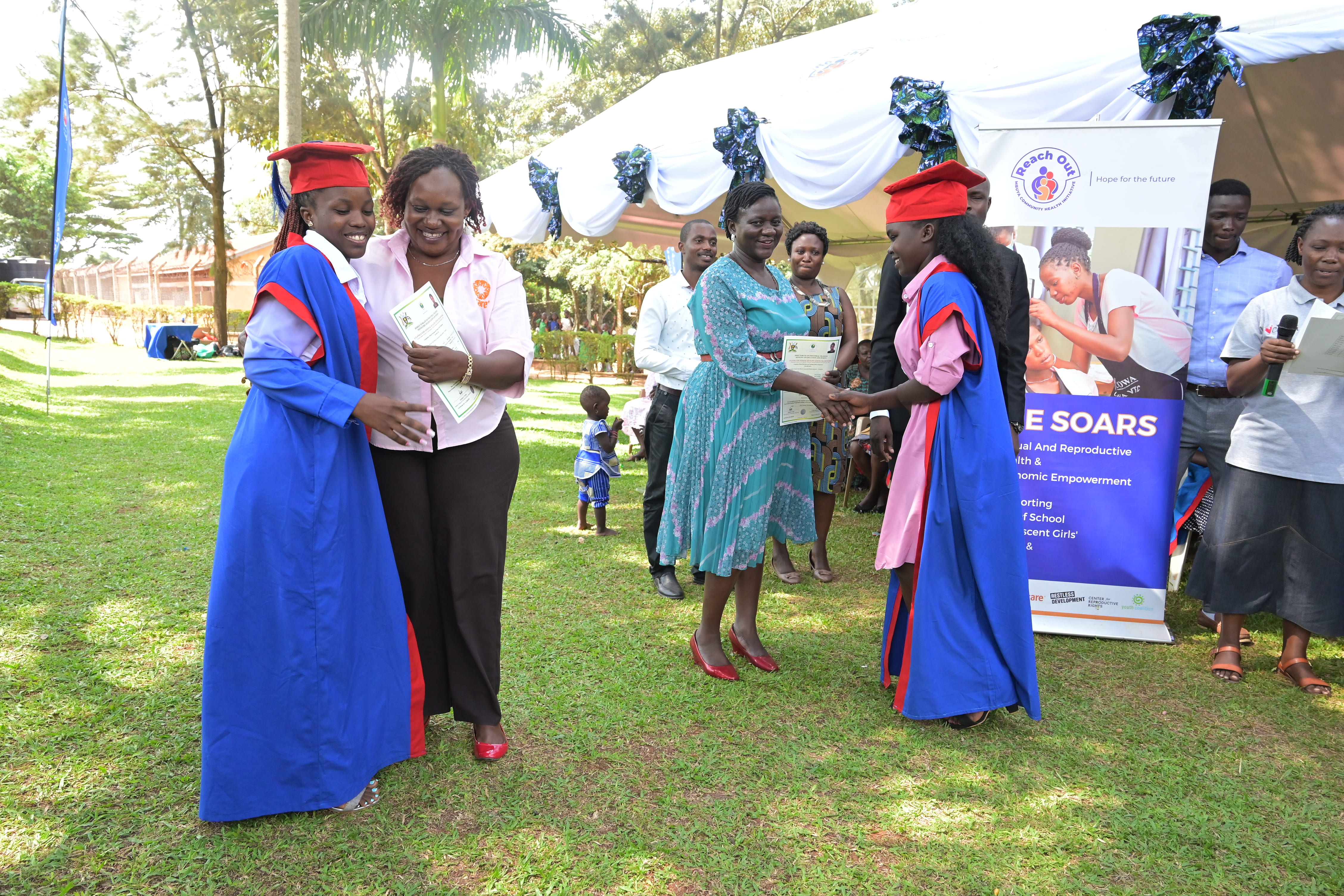ROM has for over two decades, advanced education in Uganda, expanding opportunities for children, adolescents, and youth including the most vulnerable. What began as a program to keep orphans and vulnerable children of people living with HIV in school has grown into a comprehensive model that addresses barriers across the entire education continuum from primary through tertiary, while integrating vocational and life skills for employability and resilience.
At the primary level, ROM supports enrolment, attendance, and completion for vulnerable children through provision of
scholastic materials, mentorship, and parental engagement. Accelerated education pathways provide second chances for out-of-school children and adolescents, enabling them to re-enter formal schooling or pursue vocational options. Safe spaces and bridging programs for adolescent girls ensure continued learning and protection from early marriage, teenage pregnancy, and school dropout.
Vocational and technical skilling form a cornerstone of ROM’s approach. Young people, especially adolescent girls, young mothers, and unemployed youth, are trained in trades such as tailoring, carpentry, mechanics, agribusiness, catering, and eco-enterprise. Soft skills including financial literacy, communication, leadership, and digital literacy, are integrated, equipping learners with the competencies needed to thrive in the labor market. Partnerships with apprenticeship programs, private sector actors, and community-based enterprises provide practical exposure and pathways to income generation.
For tertiary level learners, ROM facilitates access to scholarships, mentorship, and internships, ensuring equitable opportunities for orphans, vulnerable youth, and young mothers. Career guidance, digital training, and entrepreneurship incubation further strengthen transitions into higher education and employment.
Community health and social support are integrated into education delivery to address structural barriers.
School-based health programs deliver sexual and reproductive health education, HIV prevention, psychosocial support, and nutrition. Young mothers are supported through tailored skilling programs, childcare services, and livelihood interventions that allow them to return to school or vocational training while sustaining their households. Community-based organizations, civil society groups, and school management committees are strengthened through mentorship, training, and joint planning. This governance model builds accountability and ensures education programs respond to community needs while aligning with national education priorities. Village Savings and Loan Associations, revolving funds, and livelihood initiatives support caregivers to sustainably finance education, reduce dropouts, and improve household resilience



